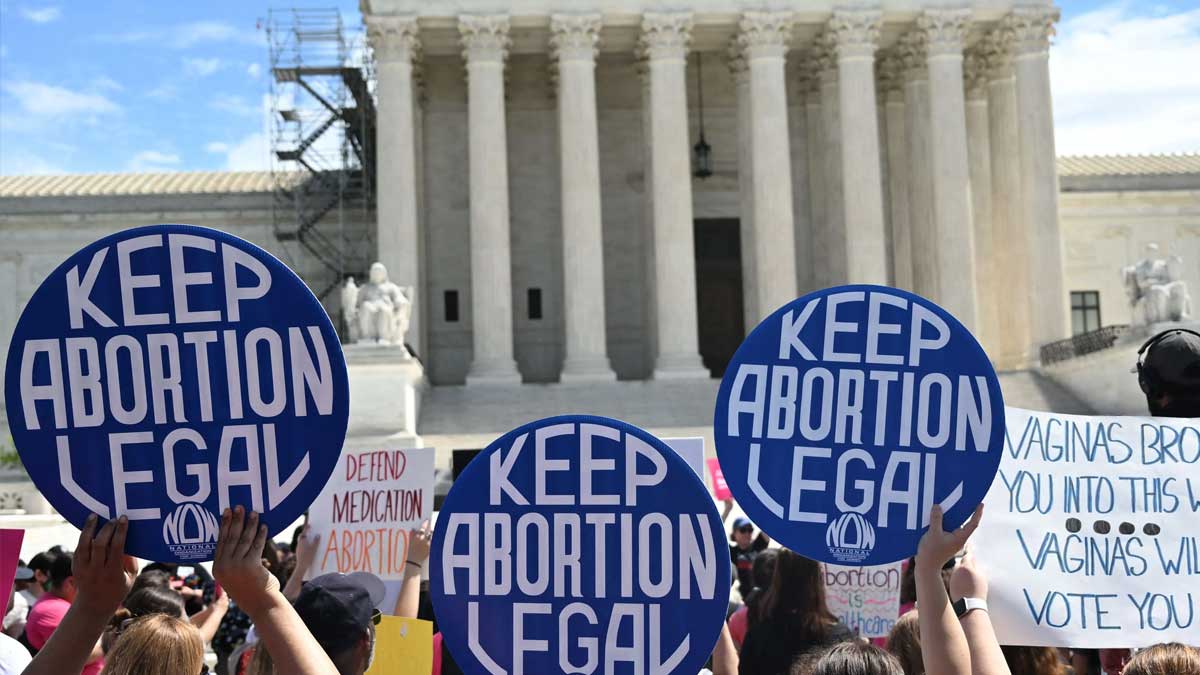- Home
- Billionaires
- Investing Newsletters
- 193CC 1000
- Article Layout 2
- Article Layout 3
- Article Layout 4
- Article Layout 5
- Article Layout 6
- Article Layout 7
- Article Layout 8
- Article Layout 9
- Article Layout 10
- Article Layout 11
- Article Layout 12
- Article Layout 13
- Article Layout 14
- Article Sidebar
- Post Format
- pages
- Archive Layouts
- Post Gallery
- Post Video Background
- Post Review
- Sponsored Post
- Leadership
- Business
- Money
- Small Business
- Innovation
- Shop
Recent Posts
Supreme Court Keeps Mifepristone Legal, GOP States Plan to Sue

The Supreme Court has upheld the legality of the abortion pill Mifepristone, ruling that anti-abortion groups lack standing to challenge its legality. This decision is seen as a victory for abortion rights advocates, but the legal battle over the pill’s future is likely to continue, with three GOP-led states indicating they will pursue the case. The ruling means that the regulation of the abortion drug will remain unchanged, and its FDA approvals will not be rolled back. However, the Court’s decision did not address the merits of whether Mifepristone should be restricted, sending the case back to lower courts without dismissal.
Erin Hawley, an attorney with the Alliance Defending Freedom representing the challengers, stated that the litigation is expected to continue, with Kansas, Idaho, and Missouri leading the charge. These states argue that the current approvals for Mifepristone cause harm to state-run insurance programs and hospitals, as well as to their sovereign interests in creating and enforcing laws. Despite the Supreme Court not allowing these states to intervene in the case, they are likely to explore alternative options to continue the legal battle.
It remains uncertain when or if the states will revive the case and how long the legal process will take with the GOP-led states now at the forefront. While Idaho and Missouri have laws banning abortion, Kansas protects access to the procedure after voters supported a measure protecting abortion rights. However, lawmakers in Kansas have still attempted to restrict and ban abortion despite the vote, passing laws that impose measures such as requiring providers to ask patients why they’re seeking an abortion and banning coercion into the procedure.
The challenge against Mifepristone is part of a broader attack on medication abortion, which has become a key way for Americans in states where abortion is banned to access the procedure more covertly and without nearby clinics. Mifepristone, taken alongside misoprostol, is considered safe and effective for terminating a pregnancy. However, misoprostol, which is also used for other conditions, has not faced the same legal scrutiny as Mifepristone.
This legal battle over Mifepristone began in 2022 when anti-abortion medical groups filed a lawsuit against its use. A Trump-appointed district judge initially blocked the drug’s approval entirely, but an appeals court partially overturned this decision, keeping Mifepristone legal but undoing recent approvals that made it available via telehealth. The Supreme Court’s ruling centered on the challengers’ lack of standing to sue, rejecting claims that doctors would be harmed by having to treat patients with complications from medical abortions.
Recent Posts
Categories
- 193cc Digital Assets2
- 5G1
- Aerospace & Defense46
- AI37
- Arts3
- Banking & Insurance11
- Big Data3
- Billionaires462
- Boats & Planes1
- Business328
- Careers13
- Cars & Bikes76
- CEO Network1
- CFO Network17
- CHRO Network1
- CIO Network1
- Cloud10
- CMO Network18
- Commercial Real Estate7
- Consultant1
- Consumer Tech180
- CxO1
- Cybersecurity68
- Dining1
- Diversity, Equity & Inclusion4
- Education7
- Energy8
- Enterprise Tech29
- Events11
- Fintech1
- Food & Drink2
- Franchises1
- Freelance1
- Future Of Work2
- Games141
- GIG1
- Healthcare78
- Hollywood & Entertainment186
- Houses1
- Innovation42
- Investing2
- Investing Newsletters4
- Leadership65
- Lifestyle11
- Manufacturing1
- Markets20
- Media193
- Mobile phone1
- Money13
- Personal Finance2
- Policy567
- Real Estate1
- Research6
- Retail1
- Retirement1
- Small Business1
- SportsMoney33
- Style & Beauty1
- Success Income1
- Taxes2
- Travel10
- Uncategorized8
- Vices1
- Watches & Jewelry2
- world's billionaires431
Related Articles
Trump Moves $4B Stake in Truth Social Parent, Stock Drops 6%
Donald Trump recently transferred his 57% stake in Trump Media & Technology...
By 193cc Agency CouncilDecember 20, 2024House Rejects Trump-Backed Funding Bill, Shutdown Looms
The U.S. House of Representatives rejected a new government funding bill on...
By 193cc Agency CouncilDecember 20, 2024Trump Named Time’s Person of the Year for Second Time
On Thursday, Time magazine honored Donald Trump as its “Person of the...
By 193cc Agency CouncilDecember 12, 2024Meta Donates $1 Million to Trump’s Inaugural Fund
Meta, the parent company of Facebook and Instagram, has confirmed a $1...
By 193cc Agency CouncilDecember 12, 2024















Leave a comment